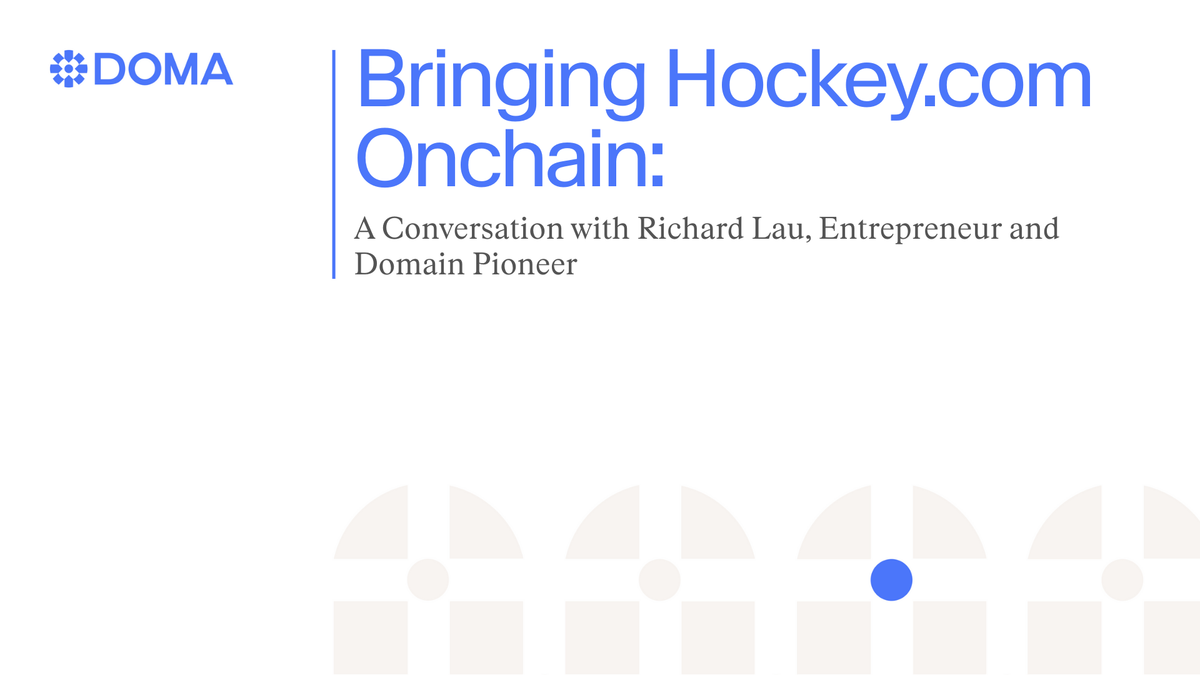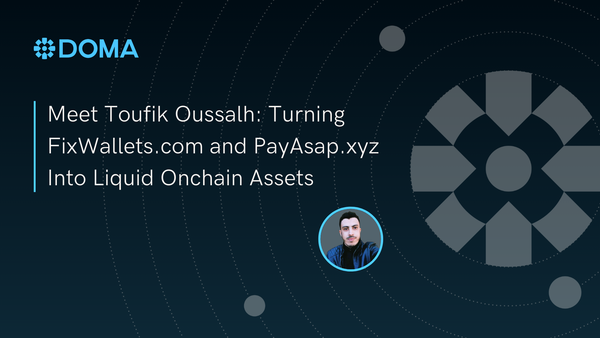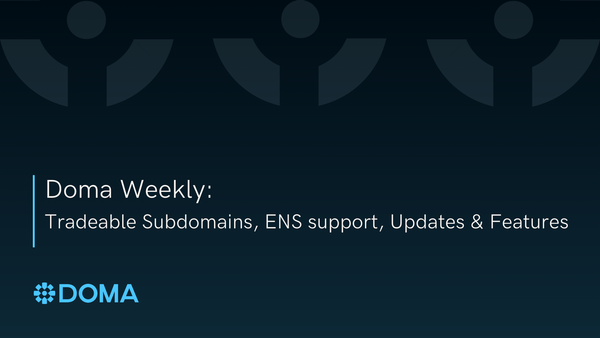Bringing Hockey.com Onchain: A Conversation with Richard Lau, Entrepreneur and Domain Pioneer

A Q&A with Fred Hsu (CEO & Co-Founder, D3)
During a recent conversation for the DomainFi Vanguard series, I sat down with Richard Lau, serial entrepreneur, branding visionary, and a pioneer in the domain industry.
Richard has founded and successfully exited multiple ventures, including NamesCon, Resume.com (acquired by Indeed), and most recently, Logo.com. With more than two decades of deep involvement in naming, domain strategy, and branding, Richard brings unmatched experience and perspective.
In our conversation, we explored the evolution of domain investing, what premium assets like hockey.com represent in a tokenized world, and why he believes DomainFi is finally bridging the old and the new.
Fred: Richard, you’ve been a force in domains for over 20 years. Founder of NamesCon, broker of top-tier domains, and now, advisor to several cutting-edge projects. What’s keeping you excited these days?
Richard: Thanks, Fred. I’m still as passionate about domains as ever, because they’re one of the only forms of internet real estate that have stood the test of time. But what really has me leaning in now is how this new web3 cycle has aligned with the infrastructure we’ve needed to financialize domains.
Fred: Let’s talk about hockey.com. That’s a blue-chip domain in any era. Why tokenize it now?
Richard: Because we finally can. A name like hockey.com has enormous value, but traditionally, that value is locked unless you sell it outright.
With tokenization, I can break it into digital shares, like issuing stock, and let others buy fractional ownership. I keep control, but others can trade or invest in the domain onchain. Imagine turning your domain into an actual financial instrument. Something you can lease, trade, or even use as collateral. How cool is that?
Fred: That’s a huge shift for most domainers. What's the practical upside here?
Richard: I mean the obvious ones are liquidity, reach, and optionality. We’re talking about opening access to buyers and investors using their crypto Wallets, browsing various NFT marketplaces, or trading domain exposure alongside ETH or BTC. Domainers can now reach the crypto-native audience without needing to be crypto-native themselves.You are not abandoning Web2. You are embracing both Web2 and Web3.
Fred: From what I hear, more of your portfolio may be tokenized down the line?
Richard: Absolutely. Hockey.com is just the beginning. We’re entering a new cycle. And I’d rather be early and learning than late and scrambling.
Fred: Why now? What’s changed since the early days of crypto?
Richard: Timing. Crypto has matured.
Today, the biggest asset managers are investing in tokenized real-world assets (RWAs), from real estate to treasuries. We already know how prominent Bitcoin has become as a financial asset. Plus. Ethereum and Solana have become dominant platforms, and wallets like MetaMask and Coinbase make access easy.
Domainers are sitting on scarce, high-value assets. Tokenizing them is the next logical step.
Fred: So you’re bullish on fractionalization and DomainFi long term?
Richard: Extremely. This is the breakthrough we’ve waited for.
Now I can say: "Own 1% of hockey.com and trade it onchain." Or: "Stake your domain portfolio and borrow against it."
We’re moving from static domain parking to active financial utility. For domainers, this is a powerful upgrade in how you manage and monetize assets.
Fred: What would you say to the traditional domainers who are a bit skeptical?
Richard: Skepticism is healthy. I get it.
But don’t wait to be “100% convinced.” Start small. Tokenize one domain. Join a fractional drop. Just experiment.
We’re not talking about speculative memecoins here. We’re talking about giving your existing domains new capabilities. Domains aren’t going away. But the way we extract value from them is changing.
Fred: What advice would you give to someone entering the domain space in 2025? Is it still a good time to start?
Richard: It’s always a good time, if you’re playing the right game. Don’t try to outpace people who’ve been here for decades with better portfolios. Instead, focus on niches. Learn where the next wave of small business activity is happening, maybe it’s in creator tools, maybe it’s in AI consulting, maybe it’s in wellness. Then find domains that solve naming pain points for those people.
Fred: What role do you see yourself playing in this next phase?
Richard: I want to keep building. Keep mentoring. Keep participating in these conversations. And if I can help push the industry forward, whether that’s through advisory roles, collaborations, or new products, I’m all in.
I’d rather be early and learning than late and scrambling.
Fred: Any parting thoughts?
Richard: Domains are foundational assets. They’re not going anywhere. But what is changing is how we extract value from them. DomainFi, fractionalization, onchain markets that’s not just a new chapter. That’s a whole new book.
Fred: Couldn’t have said it better. Thanks, Richard. Always a pleasure.
Richard: Likewise, Fred. The next wave is here.




